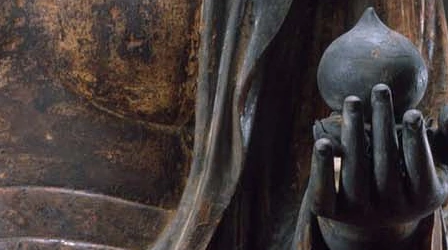Dependent Origination
Subscribe to this topic via: RSS
Paṭicca-samuppāda is the teaching on causes and conditional relations.
Caution! Under Construction
Please be aware that this tag is still under construction and as such is missing information and may be changed or removed at any time. For all the content under consideration for this tag, see the “Dependent Origination” folder on Google Drive.
Table of Contents
Books (5)
Canonical Works (67)
Featured:
-
A translation of DN 15 together with its traditional (Theravāda) commentary and subcommentary, featuring an introduction and appendix by the translator introducing the Abhidhamma system by which the commentaries analyzed this sutta.
-
The canonical analysis of dependent origination as given in the Theravāda, parallel to this Tibetan and this Mahayana version.
-
⭐ Recommended
… with liberation as proximate cause, the knowledge of destruction.
-
⭐ Recommended
That perplexity, doubtfulness, indecisiveness in regard to the true Dhamma is a formation. That formation—what is its source, what is its origin, from what is it born and produced?
-
… consciousness exists dependent on duality
-
And what, Bhante, is the purpose and benefit of the knowledge and vision of things as they really are?
-
… what is that due to apart from seeing things as they really are?
-
But because consciousness is painful—soaked and steeped in pain and not steeped in pleasure—sentient beings do grow disillusioned with it. Being disillusioned, desire fades away. When desire fades away they are purified. This is a cause and reason for the purification of sentient beings.
-
What others say is happiness
the noble ones say is suffering.
What others say is suffering
the noble ones know as happiness. -
There exists in the Blessed One the eye, the Blessed One sees a form with the eye, yet there is no desire and lust in the Blessed One; the Blessed One is well liberated in mind.
-
Whenever there are arguments and quarrels, tears and anguish, arrogance and pride, and grudges and insults to go with them, can you explain how these things come about?
-
Craving is a cause of seeking. Seeking is a cause of gaining…
-
searches
And the origin of searches,
Where they cease and the path… -
Rather than saying “who” creates our suffering, the Buddha says “what” suffering (and views about it) depend on.
-
Bhikkhus, what one intends, and what one plans, and whatever one has a tendency towards: this becomes a basis for the maintenance of consciousness.
-
Bhikkhus, I will teach you the origin and the passing away of suffering. Listen to that and attend closely, I will speak.
-
A noble disciple does not think about the links of dependent origination, as they see them directly and know them for themselves.
-
Thus, sustained by that oil, fuelled by it, that oil lamp would burn for a very long time. So too, when one lives contemplating gratification in things that can fetter, craving increases…
-
…the lakes surging cause the pools to surge. So too, ignorance surging causes volitional formations to surge…
-
Since thoughts are produced by what is not-self, how could they be self?
-
When a bhikkhu develops and cultivates the Noble Eightfold Path, his fetters easily collapse and rot away.
-
this not being, that is not;
from the cessation of this, that ceases. -
For the independent there’s no agitation. When there’s no agitation there is tranquility.
See also:
Readings (15)
Featured:
-
Nagarjuna relentlessly analyzes phenomena or processes that appear to exist independently and argues that they cannot so exist, and yet, though lacking the inherent existence imputed to them either by naive common sense or by sophisticated, realistic philosophical theory, these phenomena are not nonexistent-they are, he argues, conventionally real.
-
… in Huayan philosophy in particular the notion of interconnectedness or interdependence arose, according to which all phenomena relate to each other in one way or another. Despite its traction in the contemporary setting, this notion needs to be recognized as a later development that is by no means identical with the basic Buddhist teaching on dependent arising.
See also:
Audio/Video (9)
Featured:
-
Remember the earth whose skin you are
5 min
See also:
